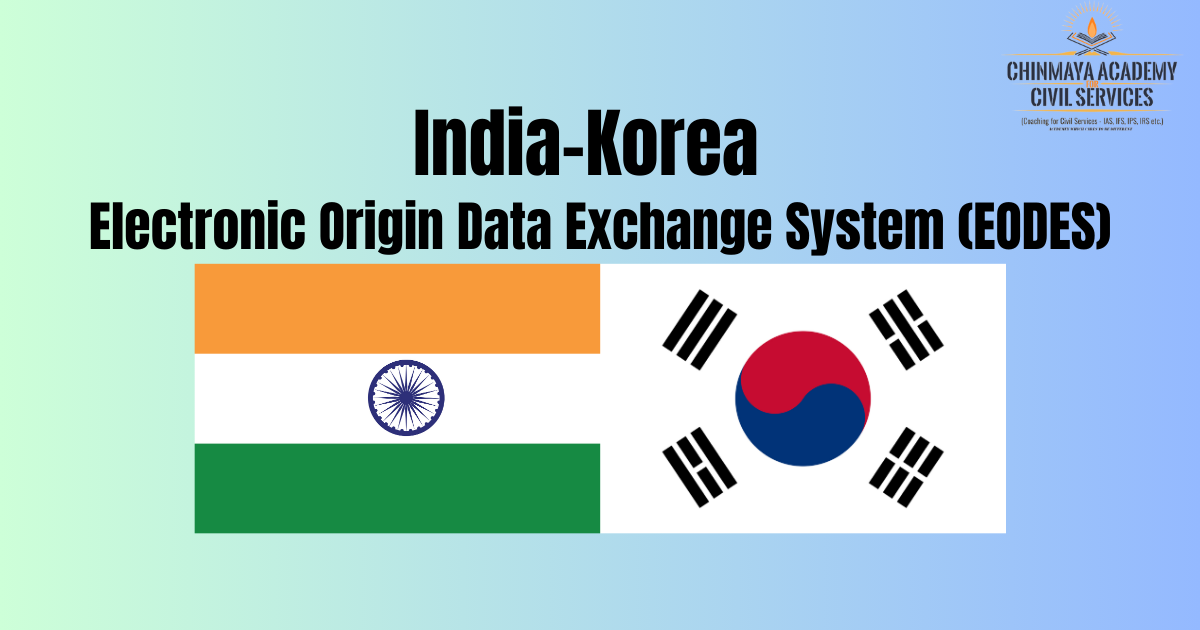Ministry of Finance has announced “India-Korea Electronic Origin Data Exchange System (EODES) for faster clearance of imported goods launched”
By enabling the electronic exchange of origin data for goods traded under the Comprehensive Economic Partnership Agreement (CEPA) between the customs administrations of Korea and India, EODES will streamline the CEPA’s implementation.
Electronic Origin Data Exchange System (EODES)
This information is crucial for determining the applicable trade preferences and duties.
Purpose
- Facilitate faster and more efficient customs clearance.
- Reduce administrative burden for businesses.
- Enhance transparency and security of origin data.
- Promote paperless trade.
Benefits
- Reduced time to market: EODES eliminates the need for paper certificates, leading to faster customs clearance and quicker delivery of goods.
- Improved accuracy: Electronic exchange of data minimizes human error and ensures consistency in origin information.
- Enhanced security: EODES utilizes secure electronic signatures and encryption to protect against fraud and tampering.
- Reduced costs: Businesses save time and money by eliminating the need for printing, mailing, and handling paper certificates.
- Increased transparency: EODES provides a centralized platform for access to origin data, improving transparency and accountability in trade.
Implementation
Several countries have implemented EODES, including:
- China-Singapore: Established in 2019, the EODES facilitates the exchange of Preferential Certificates of Origin (PCO) and Certificates of Non-Manipulation (CNM) between the two countries.
- India-Korea: Launched in 2023, the EODES simplifies the implementation of the India-Korea Comprehensive Economic Partnership Agreement (CEPA) by exchanging origin information electronically.
- Other countries: Several other countries are exploring the implementation of EODES, including Australia, New Zealand, and the European Union.
Future plans:
India is actively exploring the implementation of EODES with other trade partners, including:
- ASEAN countries: Negotiations are underway to establish EODES with ASEAN member countries.
- Australia: Discussions are ongoing to develop a bilateral EODES solution.
- New Zealand: The potential for EODES implementation is being explored.
 Chinmaya IAS Academy – Current Affairs Chinmaya IAS Academy – Current Affairs
Chinmaya IAS Academy – Current Affairs Chinmaya IAS Academy – Current Affairs

